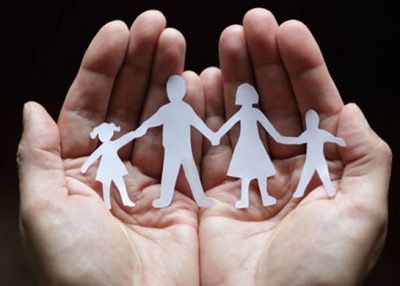
As the pandemic caused by the Corona virus, also known as Covid-19, has claimed more than 6 million lives worldwide, there are also many concerns about what human life will be like in the post-Covid-19 era. Especially the issue of population and human resources serving development after a long period of devastation caused by the pandemic.
Analyzing the impact of the Covid-19 pandemic on population and human resources is becoming a controversial topic in the world. Empirical demographers argue that the pandemic caused by Covid-19 on humanity is a factor that directly affects the world's population and thereby also affects human resources for development in the coming years. Those who follow this point of view believe that Covid-19 is a population screening factor according to a cruel law that no one wants to witness, which is the law of "the strong survive the weak". Covid-19 is like a brutal purge of human society and eliminates the sick, those with underlying diseases or those with low resistance. Some people are even coldly rational in their assessment that this purge has caused shock and fear on the international level, but it is also a factor that reduces the pressure of population on natural resources as well as the consumption pressure of economies for the Earth. The number of people who have been reduced is mostly the elderly, the sick, and the in poor health. Not only that, economies also have to cut costs, especially on energy and other resources or seek new soft resources for development to adapt to the post-Covid-19 period.
The arguments of positivists also met with immediate opposition from moral economists. They argued that viewing the pandemic as a population cleansing agent and reducing population pressure on resources is insensitive. The pandemic is something no one wants and it cannot be considered a positive factor for humans, when it has taken the lives of millions of people. Rapid population growth puts pressure on resources as well as general conditions on Earth and limiting population growth is a strategy of countries as well as a common strategy of the whole world. But it needs to be implemented according to appropriate programs and uphold human values. Moral economists also criticized rational demographic views when they saw it as a cause of risk that many places, especially poor countries, will neglect or lack enthusiasm in treating people infected with Covid-19.

These two viewpoints have attracted many participants and even heated debates. In fact, rational demographers did not create the epidemic, but they only analyzed the situation based on epidemic statistics published by countries and relevant organizations. Although their views are somewhat cold, they still have certain reference values. Ethicists also show humanistic thinking when looking at the epidemic with a more sympathetic eye, and especially worry about the consequences that may occur when human lives may be neglected due to people's increasingly subjective and overly rational responses to Covid-19. And recently, viewpoints on demography and development research have delved into analyzing concerns about the quality of human resources for economic recovery in order to discuss this issue more comprehensively.
Does the pandemic change the world's population much? This is a question of interest to many people. Demographers have analyzed the data as evidence. By the end of March 2022, the Covid-19 pandemic had claimed the lives of 6.14 million people worldwide, directly affecting the health of about 463 million infected people. These are terrifying numbers due to a pandemic. But in terms of world population fluctuations, it shows a fairly large but not too serious fluctuation. In a normal state, every year 141 million people are born worldwide and about 60 million people die. The number of people who died from the Covid-19 pandemic after more than 3 years accounts for 10.2% of the number of deaths in 1 year and nearly 4.4% of the number of people born in 1 year. Or in Vietnam, up to now we have lost more than 410,000 people due to Covid-19, the biggest loss since the two wars to defend the Fatherland in the last century. But will it change the population picture of Vietnam much when currently our total population is 98,564,407 people; each year 1,545,374 children are born, 632,573 people die, the natural population increase is 912,801 people? Certainly yes but not much. Thus, the Covid-19 pandemic has affected the world population but not to the extent of fundamentally changing the world population picture or that of a country. However, the epidemic has strongly affected the human resources of most countries in particular and the world in general.

The impact of the pandemic on human resources, if looking at the number of deaths or the number of infected people, is only a small aspect. Because the infected people are mostly outside of working age, and the number of people who die from the epidemic is mainly the elderly, the sick, and those with underlying diseases. However, the strong impact on human resources is due to the wide coverage of the epidemic and its multidimensional impact. The epidemic has forced billions of people to be quarantined, mobilizing hundreds of millions of others to participate in treating patients or participating in disease prevention and control. The epidemic also causes hundreds of millions of children to not go to school, thousands of schools from kindergarten to university have to change their teaching methods. It can be said that the Covid-19 epidemic has worn down the strength of billions of people on Earth. And once the epidemic is controlled and activities return to normal, its consequences will still be huge. After a long period of fighting the epidemic, people's strength is exhausted and it takes a long time to recover. It affects the frequency and efficiency of many fields. Not only that, post-epidemic psychological trauma is also a difficult problem, typically symptoms such as depression, fatigue, fear, neurosis, fear of contact with others, addiction to stimulants... This is also mentioned by economists and warned about the shortage of labor force or reduction in labor quality after Covid-19. Not only that, with hundreds of millions of children not being able to go to school, the impact on education also affects human resources in the near future.
In short, the Covid-19 pandemic has directly impacted the world population, but that impact has not changed the world population picture. The debate between empirical demographers and moral economists has also clarified that. However, in all aspects, Covid-19 has strongly impacted the human resources of countries as well as the world. On the one hand, the epidemic directly impacts the health of hundreds of millions of infected people and billions of related people. On the other hand, the epidemic also causes psychological trauma to hundreds of millions of people around the world or affects the quality of education in many countries. That makes human resources for post-Covid-19 development a matter of concern for many people. Therefore, right in the process of transitioning to the new normal state, we need to come up with measures to solve the problem of human resources for development in the coming period, because this is an important factor determining the recovery of the country's economy.
Article: Thien Trang
Illustration: Mai Hoa - Thanh Cuong - Tran Chau








